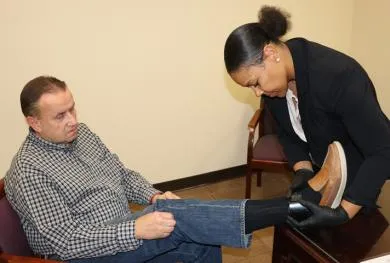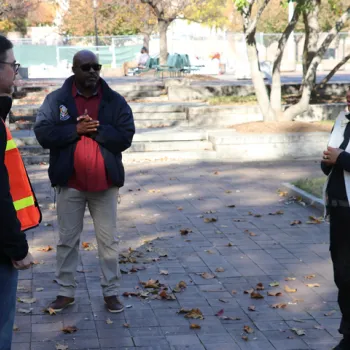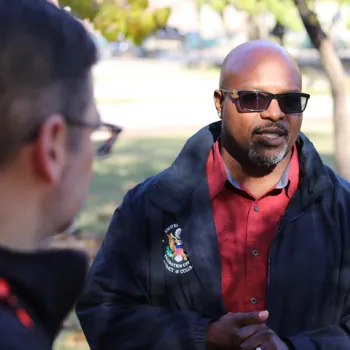Following a conviction, probation officers work to protect the community and to assist individuals with making long-term positive changes in their lives, relying on proactive interventions and evidence-based practices.
Goals
The goal of supervision is the successful completion of the term of supervision, which means that the person under supervision commits no new crimes, meets court-imposed responsibilities, and prepares for continued success by developing new skills and self-management abilities.
Types of Supervision
Some people convicted of federal crimes are ordered released to the community on a term of probation. Probation serves as an alternative to incarceration while holding people accountable for their actions. Individuals convicted of more serious crimes may be sentenced to a term of imprisonment, followed by a period of supervised release in the community. (People convicted of military offenses or convicted in the Superior Court of the District of Columbia may also serve a term of federal supervision.)
Supervision Conditions
Individuals assigned to community supervision are expected to abide by certain conditions imposed by the court. Some conditions are universally imposed, such as prohibitions on committing new crimes or possessing or using illicit drugs. Other conditions are discretionary on the part of the judge and dependent on an individual’s circumstances. They could include restrictions on associations with others or participation in a substance use disorder or mental health program.
Post-Conviction Risk Assessment
Individualized risk and needs assessments are conducted throughout the term of supervision. Assessments help determine the intensity of supervision and help officers identify aspects of an individual’s life that contribute to criminality. For example, a person’s social influences, substance use behaviors, patterns of thinking, or ability to meet basic needs, such as food, clothing, and shelter, can all contribute to involvement in the criminal justice system.
Supervision Planning
Effective supervision requires an individualized approach. To achieve this, officers employ evidence-based practices, defined as the conscientious use of the best evidence currently available to inform decisions.
Probation officers work with individuals to develop comprehensive plans that address a person’s unique risks and needs, establish short- and long-term goals, and promote compliance with court-ordered conditions. The probation officer maintains regular contact with the person under supervision via telephone, videoconferencing, and face-to-face meetings in an office or community setting to determine if changes to the supervision plan are needed.
Supervision Strategies

Officers rely on risk assessments and evidence-based practices to inform the selection and implementation of supervision strategies. Strategies include monitoring activities, restrictions, and interventions:
- Monitoring activities, such as regular check-ins with a probation officer, serve the dual purpose of encouraging compliance and keeping the officer aware of an individual’s activities.
- Restrictions, such as curfews or abstinence from drugs and alcohol, are used to limit high risk activities or associations with others.
- Interventions and skill-building are critical components of supervision and include strategies to help individuals understand the connection between thoughts and behaviors, develop problem-solving skills, and get treatment for substance use and other factors linked to involvement in the criminal justice system. Probation officers prioritize the development of a strong working alliance with people under supervision to support the interventions and promote lawful behavior.
- Officers also collaborate with family members, friends, employers, and treatment providers who impact an individual’s daily life. Such contacts can help form critical partners in the supervision process and allow officers to identify issues that contribute to criminal activity, such as substance use, association with criminally involved peers, or unstable employment.
Research has demonstrated that using a combination of strategies is more effective than using one strategy alone. The objective of all the supervision strategies is to help people achieve positive and lasting behavioral change in their lives.
Philadelphia Court Eases Reentry Into Community
A team of people at the U.S. District Court in Philadelphia is working to stop the cycle of crime and incarceration with a reentry program aimed at getting people on the right track.


